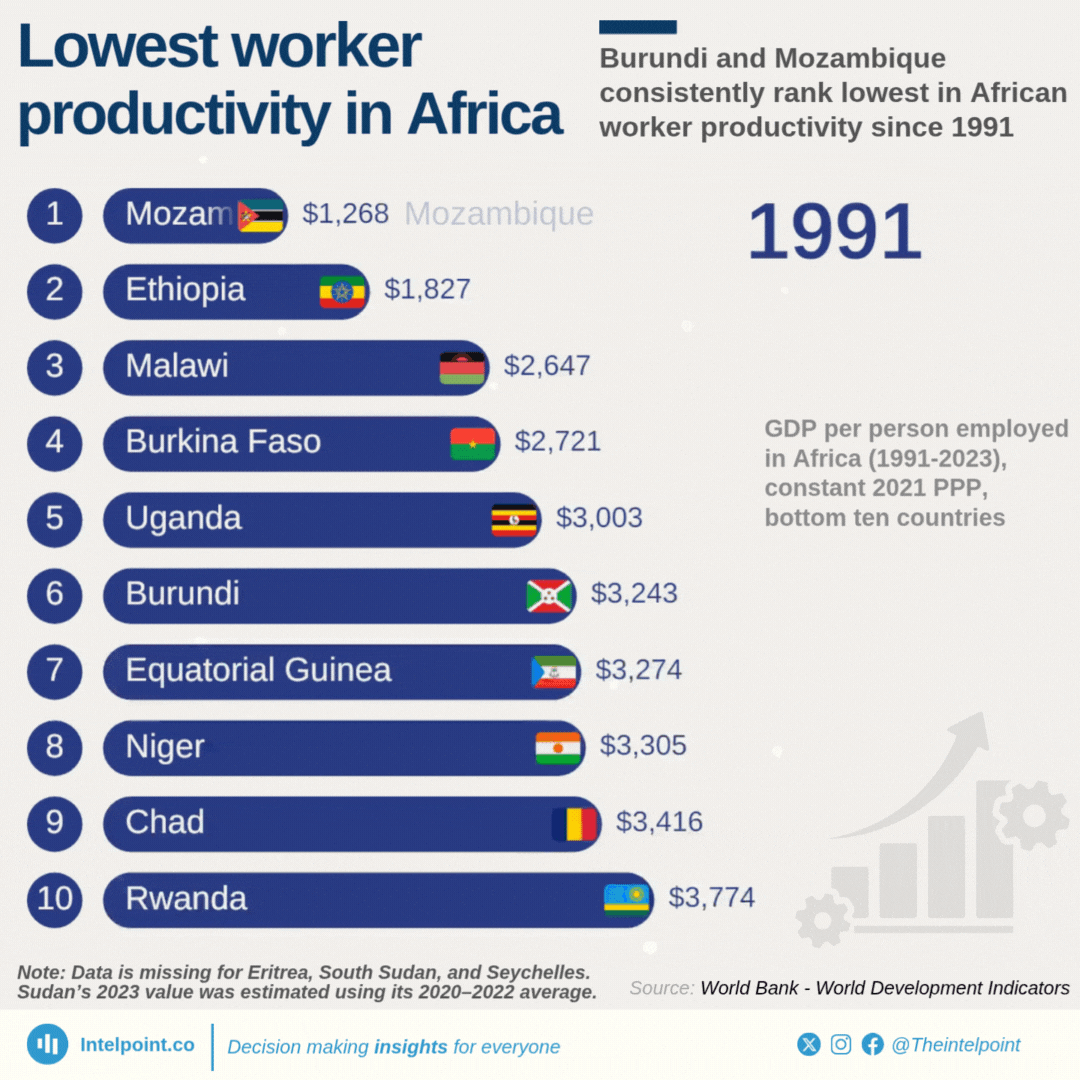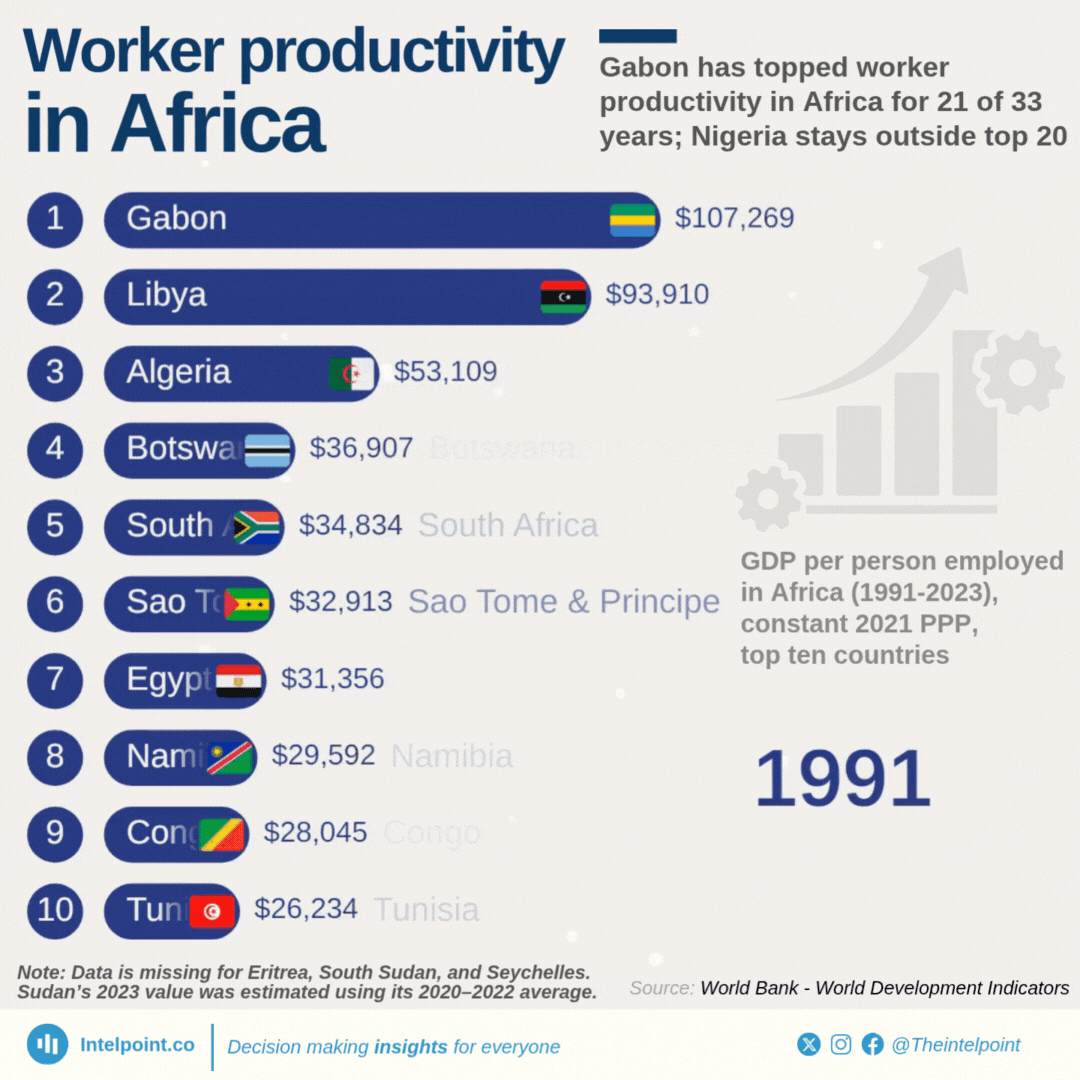In 2023, Libya led Africa in labour productivity, generating $29.7 per hour worked. Gabon and Mauritius followed at $25.6 and $25.5.
Meanwhile, Nigeria's workers generated $6.8 per hour, and Burundi recorded the lowest at $0.8.
Globally, Luxembourg and Ireland topped the list with $146 and $143 per hour, showcasing the efficiency and quality of human capital in these economies.


